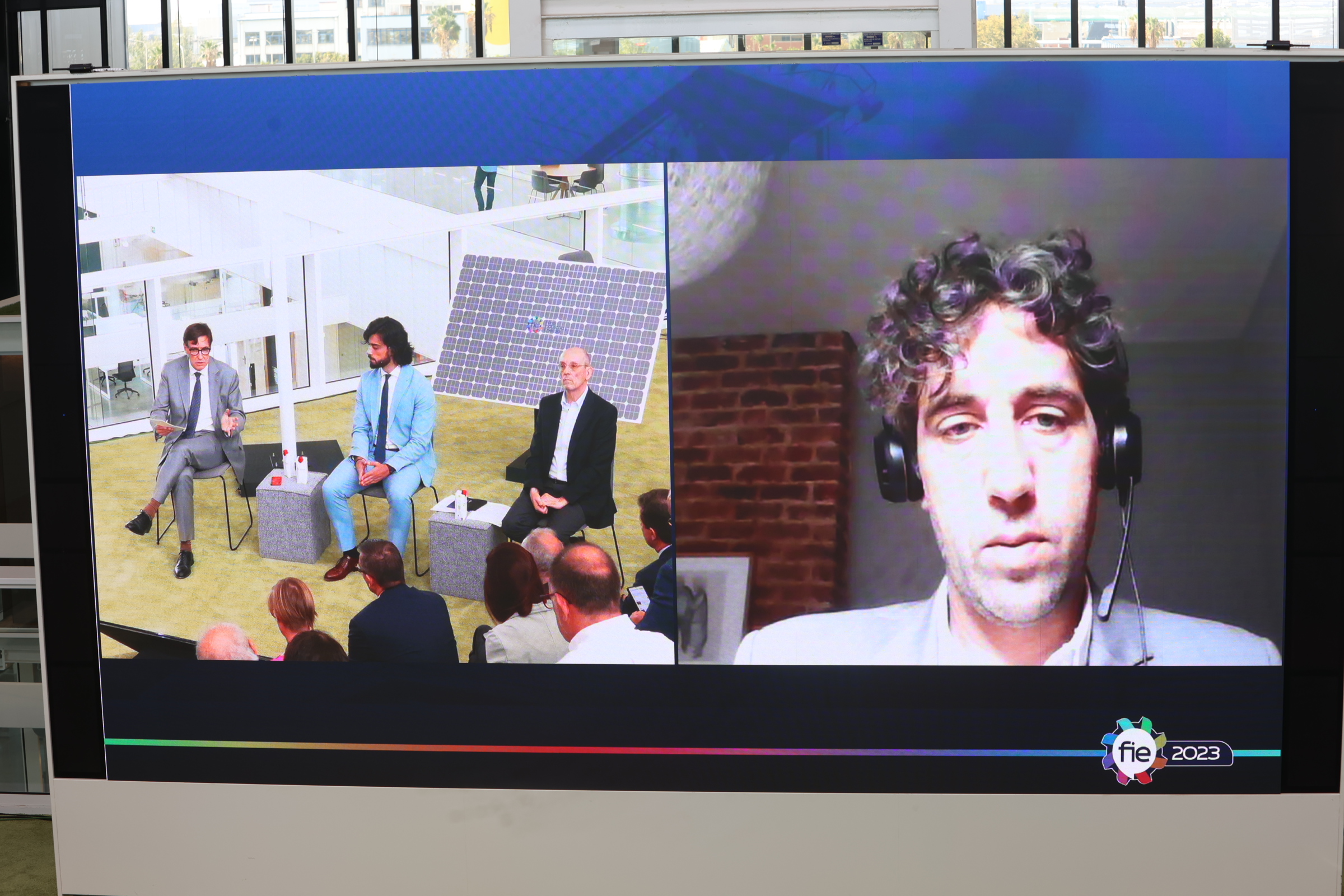- In addition to its importance in the fight against climate change, this measure brings Europe closer to the goal of achieving energy sovereignty.
As anticipated during FIE2023, Ruud Kempener, a member of the EU Commissioner for Energy’s cabinet, the new Directive on Renewable Energy Sources announced by the EU Council this week will increase the renewable energy quota to 42.5% of total energy consumption by 2030.
In addition to its significance in the fight against climate change, this measure brings Europe closer to the goal of achieving energy sovereignty, a point emphasized by various speakers at FIE2023. “The Ukraine war has shown the consequences of excessive energy dependence on certain energy sources and countries, necessitating a European-level reflection,” explained Salvador Illa, Leader of the Opposition in Catalonia, during the event.
Similarly, Artur Mas, former President of the Generalitat, advocated for energy sovereignty at the European level, noting that this conflict “highlighted that not having energy sovereignty, not only on the scale of Catalonia, Spain, or the Peninsula but at least within the EU, can come at a very high cost.”
Kempener stated in his address that, in addition to being compatible, industry and energy transition are complementary, and the decarbonization process requires the industry as a provider of solutions to develop. At the same time, this energy industry will enable the rest of the production system to operate and deliver goods in a ‘green’ and clean manner.
Therefore, given the new guidelines from the European Parliament, the decarbonization of the industry and other sectors will require a massive use of wind and solar energy, the development of which will require supply chains to double their provision, presenting an economic opportunity for the industry, according to Kempener.
You can watch Ruud Kempener’s full presentation on our official YouTube channel.

